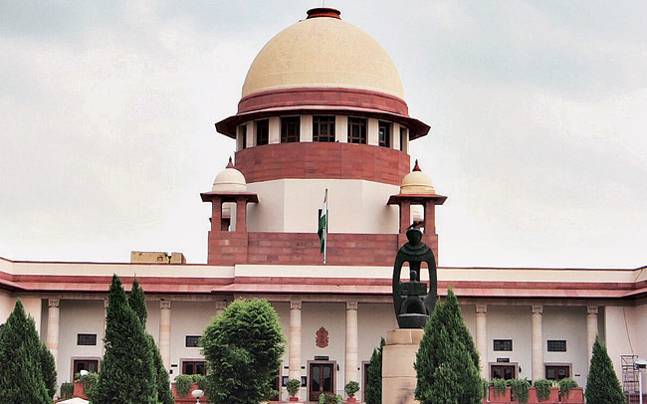Expressing that “deferral is a ground for driving capital punishment to life sentence”, the Supreme Court, in a historic point decision on Tuesday, drove capital punishment of 15 convicts. The court decided that psychological sickness and isolation can likewise be purposes behind driving capital punishment.
“… Undue, extreme and preposterous postponement in execution of capital punishment does unquestionably ascribe to torment which in fact is disregarding Article 21 and in this way involves as the ground for replacement of sentence,” said the three-Judge Bench of Chief Justice of India P Sathasivam, Justice Ranjan Gogoi and Justice Shiva Kirti Singh.
The Bench likewise held that the privilege to look for benevolence under Articles 72 and 161 of the Constitution is an established right “not at the watchfulness or impulses of the official”, and there can’t be any qualification in view of whether a man waiting for capital punishment was sentenced charges for dread or generally while engaging their request.
With this decision, the SC overruled its own decision in Khalistani psychological militant Devinderpal Singh Bhullar’s case in which it had held that postponement in choosing a benevolence supplication can’t be ground for driving capital punishment.
The 15 convicts had tested their capital punishments on the grounds of deferral by the President in choosing their benevolence supplications and psychological sickness. Among the individuals who have been conceded alleviation are four associates of killed sandalwood bootlegger Veerappan — Meesekar Madaiah, Gnanaprakash, Simon and Bilavendran — and Haryana couple Sonia and Sanjiv, who were condemned to death for slaughtering 13 of their relatives.
Encircling rules for transfer of kindness petitions and execution of capital punishments, the Bench decided that convicts who are condemned to death must be educated about the dismissal of their benevolence supplications and ought to be allowed to meet their relatives previously they are executed. It requested that execution of capital punishment ought to be done inside 14 days after dismissal of their kindness supplication.
Isolation of a detainee, including a death row convict, was held to be illegal.

In its 154-page decision, the Bench decided that if a death row convict records a benevolence request of to the Governor or President after consummation of the legal procedure “it is occupant on the specialists to discard the same speedily.”
“In spite of the fact that no time breaking point can be settled for the Governor and the President, it is the obligation of the official to assist the issue at each stage, viz., requiring the records, requests and archives documented in the court, planning of the note for endorsement of the clergyman concerned, and a definitive choice of the established experts,” it said.
The Bench likewise decided that “keeping a convict in anticipation amid thought of his leniency appeal to by the President for a long time is positively a misery for him/her… It makes unfriendly physical conditions and mental weights on the convict under sentence of death.” It observed the way that “benevolence petitions were discarded more quickly in previous days than in the present circumstances”.
As indicated by information tabled by the legislature in parliament, there are 477 death row convicts as of December 2012. These incorporate three convicts in the Rajiv Gandhi death case and Bhullar who was sentenced in a 1993 Delhi impact case.
The Indian Jurist is a legal news and analysis portal, which aims to be your one stop resource point for all your needs with regard to developments in the legal sphere. We intend to extensively cover legal news, resources and developments from the Supreme Court and High Courts, updates from law firms and in house legal departments of corporate, legislative updates and from law schools across the country.Our concentrated areas are Legal News and Updates, Indian Jurist and much more…










Comments are closed.